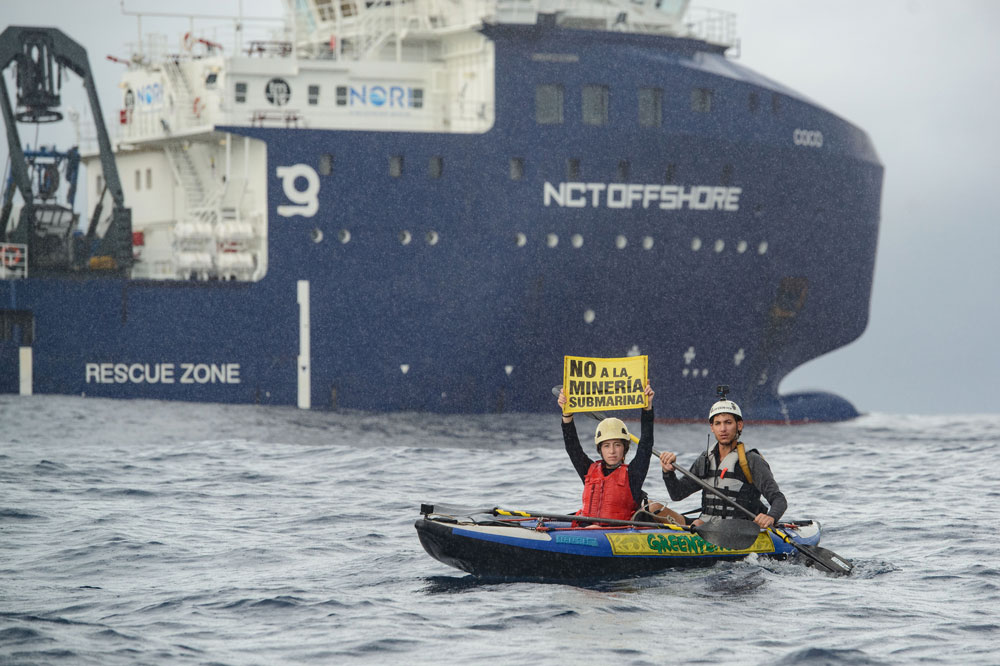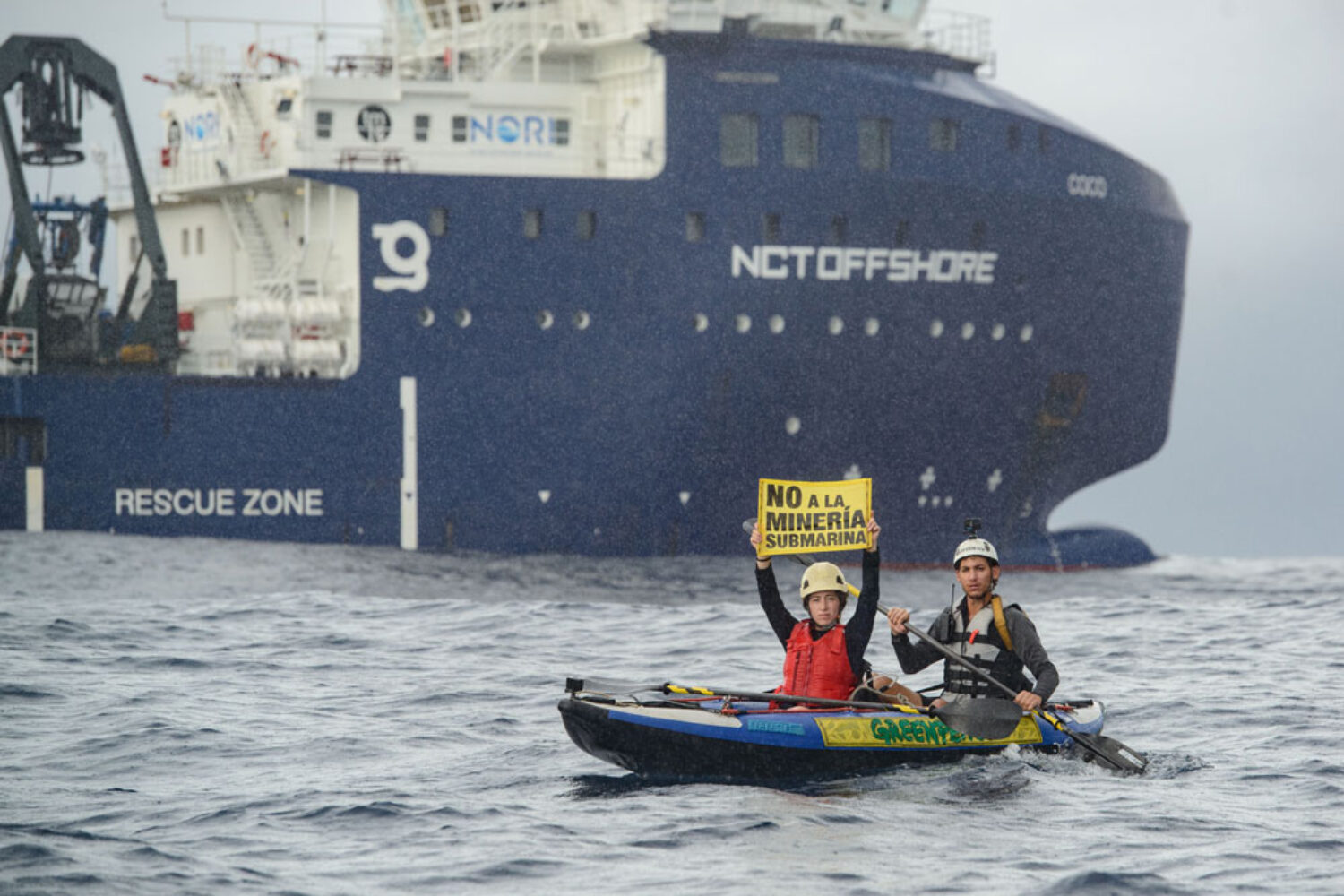Activists from Greenpeace International have demonstrated against a ship carrying out deep-sea mining for The Metals Company (TMC). The environmental organization denounces the dangers it believes this industry poses to the world’s oceans.
In pouring rain and on board kayaks launched from the Greenpeace ship“Arctic
Sunrise”, activists paddled and protested yesterday around the “Coco”, a specialized offshore drilling vessel that is currently collecting data for TMC to apply for a mining permit.
In the process, activists from Mexico, Argentina, Norway, South Korea, Poland and the United Kingdom took turns paddling to disrupt TMC’s plans from dawn to dusk. They unfurled banners with the message “Stop deep sea mining”.
First deep sea mining attempt since the 1970s
The “Coco”, equipped with two Remotely Operated Vehicles ( ROV), had arrived on November 16 in the Nori-D license area, where TMC has conducted several expeditions since the Isa Nori, a wholly owned subsidiary of TMC backed by the small Pacific island of Nauru, awarded an exploration contract in 2011. It is one of three sites in the Pacific Ocean controlled by the Canadian-registered company. TMC conducted the first deep sea mining trial in the area since the 1970s and returned to port a year ago after recovering 4,500 tons of polymetallic nodules.
Greenpeace wants to protect last untouched area from deep-sea mining
“Greenpeace International has followed this ruthless industry into the area at the heart of the deep sea mining debate and has used peaceful means to try to protect these precious ecosystems,” said Louisa Casson, Greenpeace International’s Campaigner to Stop Deep Sea Mining, on board the Arctic Sunrise. “The Metals Company is determined to ignore science, common sense and opposition from the global public in order to mine in the last untouched area of the world. We are here to rebuke this dangerous industry and let them know that deep sea mining will not begin on our watch.”
First application for commercial exploitation of the international seabed imminent
The operation, which is due to continue in the coming days, is taking place in the Clarion Clipperton Zone (CCZ). This is an area between Mexico and Hawaii. In which the deep-sea mining industry is conducting one of the last expeditions before submitting the first application for commercial exploitation of the international seabed, despite growing political opposition. As usual with Greenpeace, the protest was carried out by trained activists in a safe, peaceful and controlled manner, according to the environmental organization. The activists repeatedly informed the captain of their peaceful intentions before they began the protest and maintained contact throughout. The “Arctic Sunrise” will remain on site to protest and bear witness to the industry’s movements.
24 countries call for moratorium on deep-sea mining
In June 2021, TMC used a legal loophole in international law to try to force governments to allow deep-sea mining despite unresolved negotiations at the International Seabed Authority (ISA). After governments failed to give the green light for deep-sea mining in July, TMC announced it would submit a commercial application for deep-sea mining next year, even though there are no regulations and despite 24 countries now calling for a moratorium, including Mexico on Tuesday.
“The Metals Company has tried to subvert a democratic process and pressure countries into allowing commercial mining before there is sufficient scientific evidence to make an informed decision,” said Alex Rogers, professor of biology at Oxford University and scientific director of Ocean Census, an international research team that aims to discover at least 100,000 new species in the ocean within the next decade. “The international seabed and the high seas are a shared heritage of humanity, and it should not be in the hands of corporations intent on enriching a few to destroy marine ecosystems.”

© Martin Katz / Greenpeace













